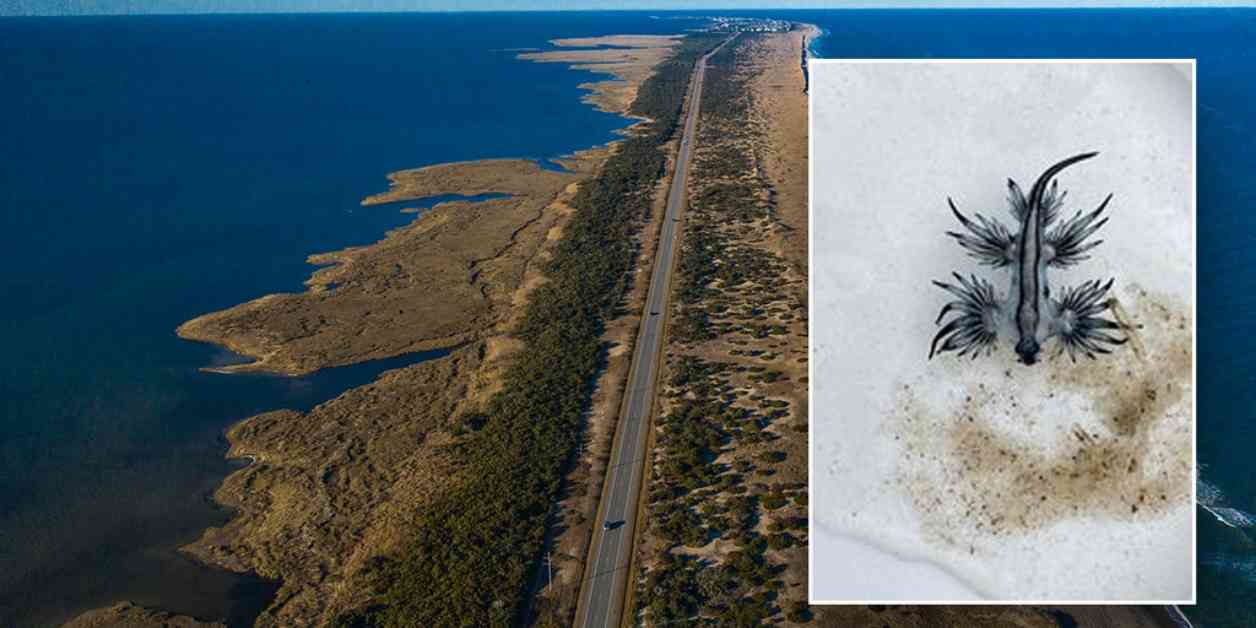Venomous creatures have been discovered washing up on the beaches of the Outer Banks in North Carolina, sparking concern among beachgoers and wildlife enthusiasts alike. The National Park Service issued a warning about the potential danger posed by these creatures, specifically the Blue Sea Dragons (Glaucus atlanticus) that have been spotted in the area. These small but powerful sea slugs are known for their venomous sting and should be approached with caution.
Blue Sea Dragons: Small but Deadly
The Cape Hatteras National Seashore took to Facebook to inform the public about the presence of Blue Sea Dragons on the beaches. These creatures, also known as sea swallows or blue angels, are typically found in the open ocean but can occasionally get stranded on land during strong winds. Despite their small size, reaching only about an inch in length, Blue Sea Dragons are not to be underestimated. They possess a potent venom that they use for self-defense, making them a dangerous encounter for unsuspecting beachgoers.
Unique Adaptations of Blue Sea Dragons
Blue Sea Dragons have unique adaptations that set them apart from other sea creatures. They are known for floating upside-down at the surface of the water, using air bubbles stored in their stomachs to stay afloat. This distinctive behavior allows them to drift along with ocean currents, feeding on their preferred prey: the Portuguese man o’ war. By consuming this venomous jellyfish-like creature, Blue Sea Dragons are able to store and concentrate its venom, making their own sting even more potent and potentially harmful.
Encountering Blue Sea Dragons Safely
If you happen to come across a Blue Sea Dragon on the beach, it is important to admire it from a safe distance and avoid touching it. These creatures can travel in groups known as “Blue Fleets,” and whether dead or alive, they remain venomous. The National Park Service advises individuals to appreciate the beauty of these fascinating organisms without putting themselves at risk of a painful sting. By exercising caution and respecting the natural habitat of Blue Sea Dragons, beachgoers can enjoy a safe and educational experience on the North Carolina coast.
In conclusion, the presence of venomous creatures like Blue Sea Dragons on North Carolina beaches serves as a reminder of the diverse and sometimes dangerous wildlife that inhabits our oceans. By staying informed and respecting these creatures from a distance, we can coexist with them in harmony while enjoying the natural beauty of our coastal environments.




